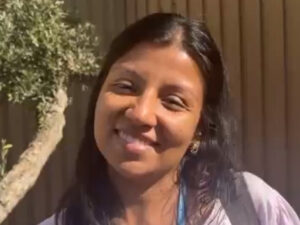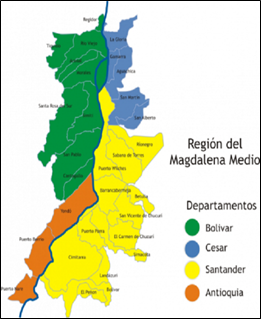On the role of women in climate justice

Climate change is a phenomenon that catastrophically affects all of humanity. This world cannot bear any more extractivism and excesses of our lifestyle. And it is also a crisis scenario that acts in a differentiated way on Global South countries and specific communities, aggravating social inequality and the violation of human rights.
Within this catastrophic panorama, a part of humanity suffers the consequences of climate change in a differentiated manner: women. According to UN Women, women are 14 times more likely to die due to a climate disaster. Women are the caregivers of the elderly and children, so they can’t escape quickly. They are often not taught to swim or cannot access warning systems. The violations of women’s human rights due to extractive projects exacerbate economic precariousness and increase sexual violence, resulting from the hierarchization of patriarchal values on life and particularly on women’s bodies.
For this reason, to speak of climate justice is to talk about gender justice, social justice and peace. The historical and structural discrimination women have experienced made them victims, but it also shows their role as transforming agents. Women are fundamental in defence of territories and human rights. There is no women’s struggle that is not for collective rights but for life itself. We cannot doubt that women’s struggle for the power to decide about their bodies is also the struggle for the right of communities to live free and in peace.
We know this very well in the organization where I come from. The Popular Women’s Organization is a grassroots social organization, born 50 years ago in the municipality of Barrancabermeja (Santander). It is a defender of human rights with a presence in the northeastern region of Colombia through 3,000 members in eight headquarters and 13 territories in the natural region of Magdalena Medio.

The Magdalena Medio region (see map) is an area that is naturally formed in the central basin of the Magdalena River, the most important river in Colombia that crosses it almost in its entirety, from south to north. This territory, which possesses great natural wealth and biodiversity, has been deeply affected by extractivism with 100 years of conventional oil exploitation. This panorama is combined with the armed conflict that puts the community at the center, particularly women, in addition to destroying the environment.
But also, in this part of Colombia, women have always committed to living. A route to generate a process of defence of the territory and the environment stems from the principles of civility and autonomy as a feminist ethical stance. Thus we have defended life in the territory we inhabit, and we have suffered, walked and sowed our integral vision of life and the relationship with our territories. We want to remain freely there, which is why we generate proposals to protect and take care of life and the territory. We want complete Peace!
This is the experience of the OFP. And like ours, there are hundreds of similar stories throughout Latin America and the Global South. Women are working for climate justice. Making their ideas and alternatives for climate adaptation visible and known is paramount, as is their projects, ways of conceiving life, and their relationship with the environment. Let us raise our voices together. This is most valuable in global dialogue, such as COP 27.
By Kelly Campo, a member of the coordinating committee of the Organización Femenina Popular (OFP), Colombia.
